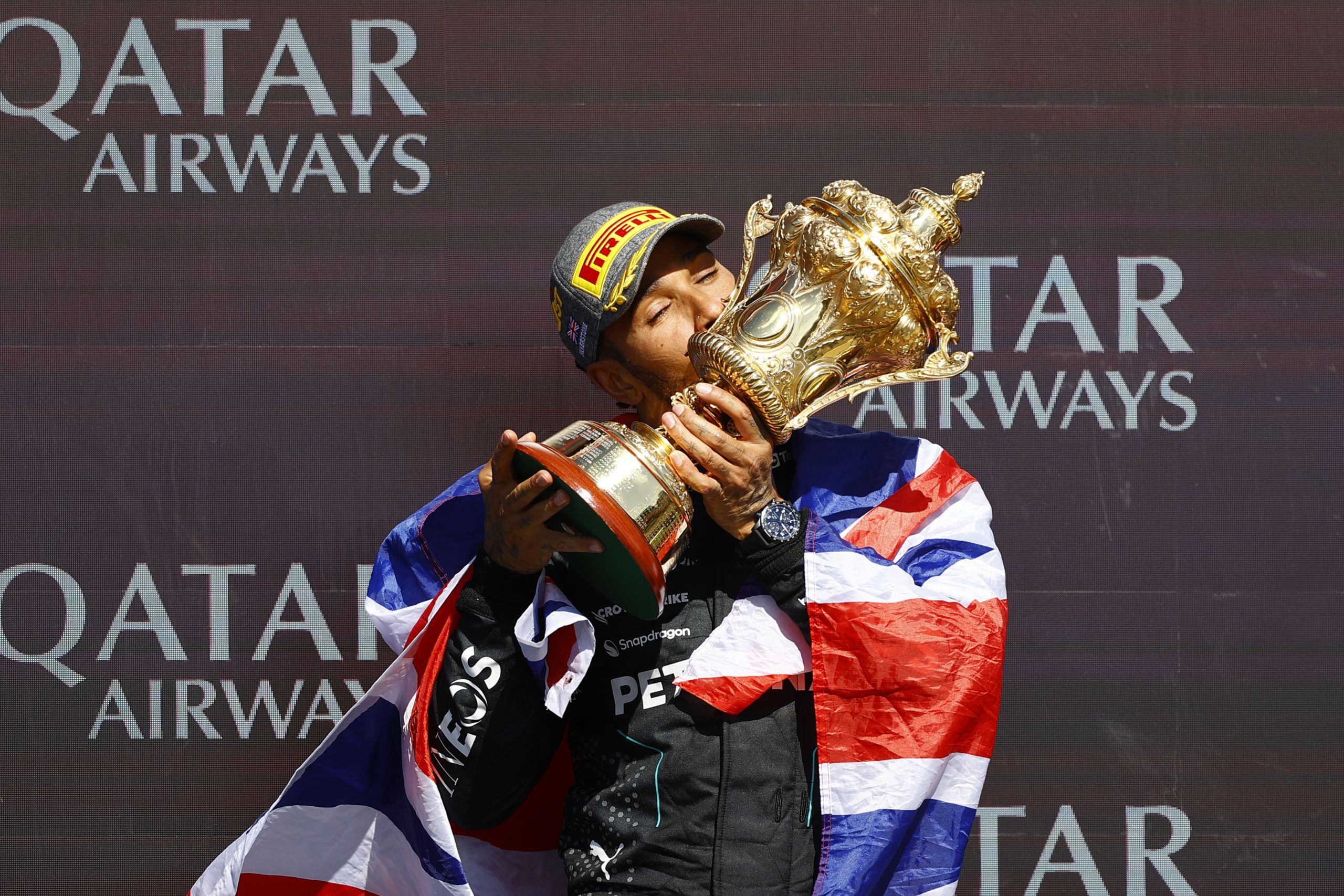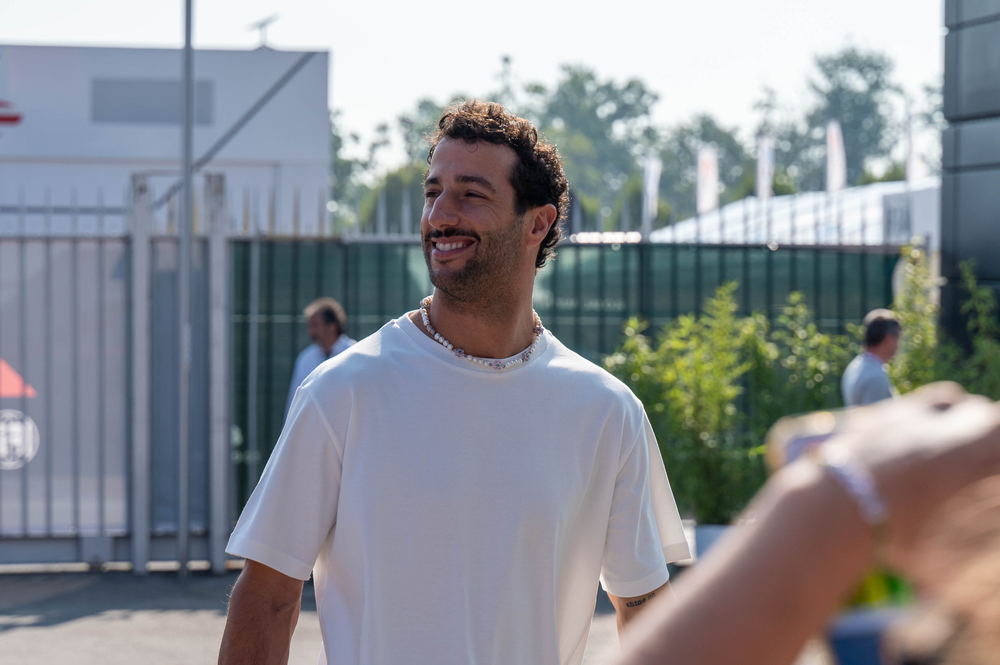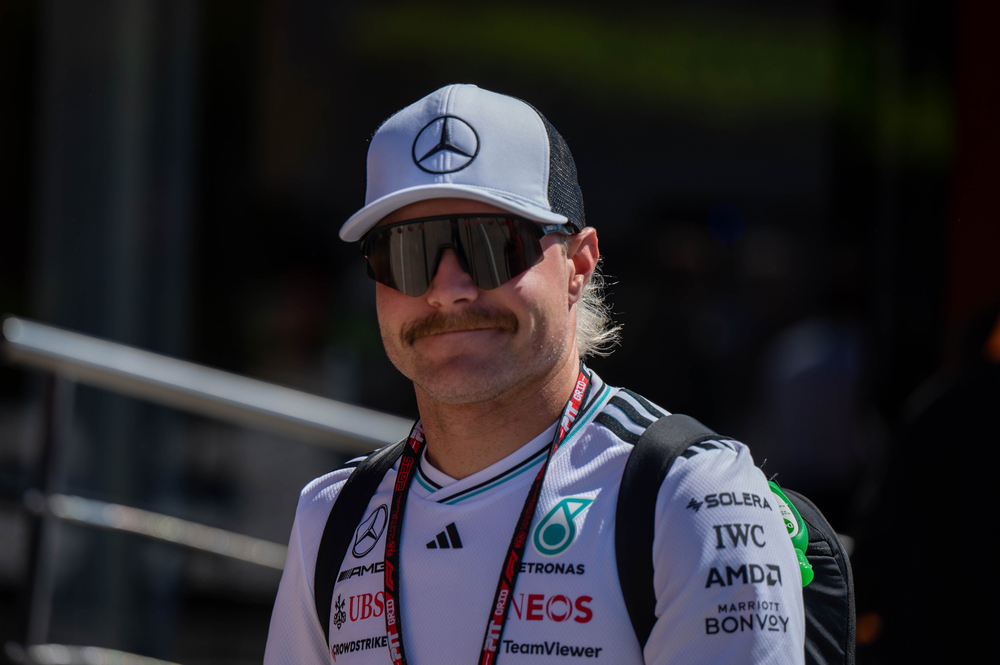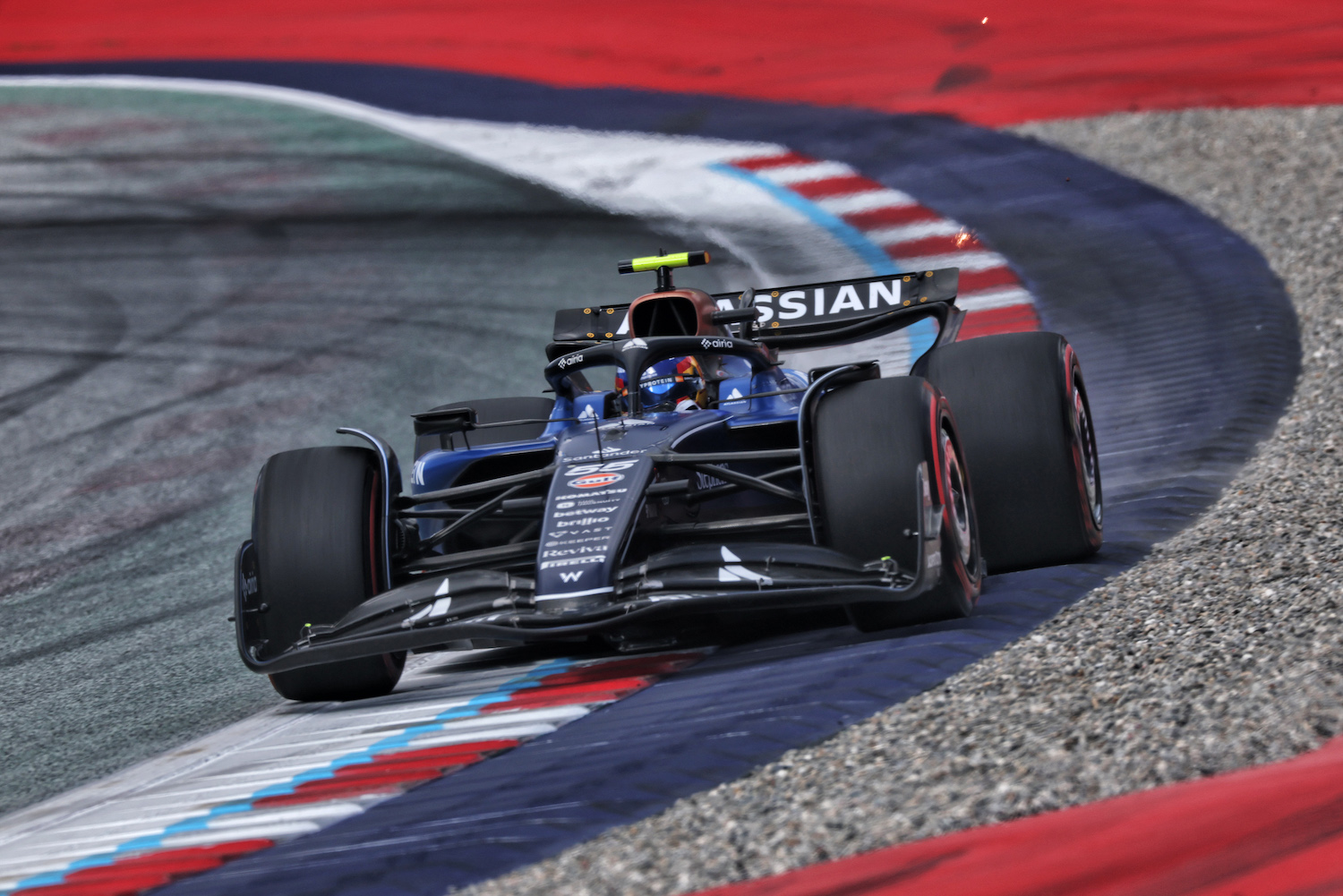Can Formula 1 Drivers Drink Water?
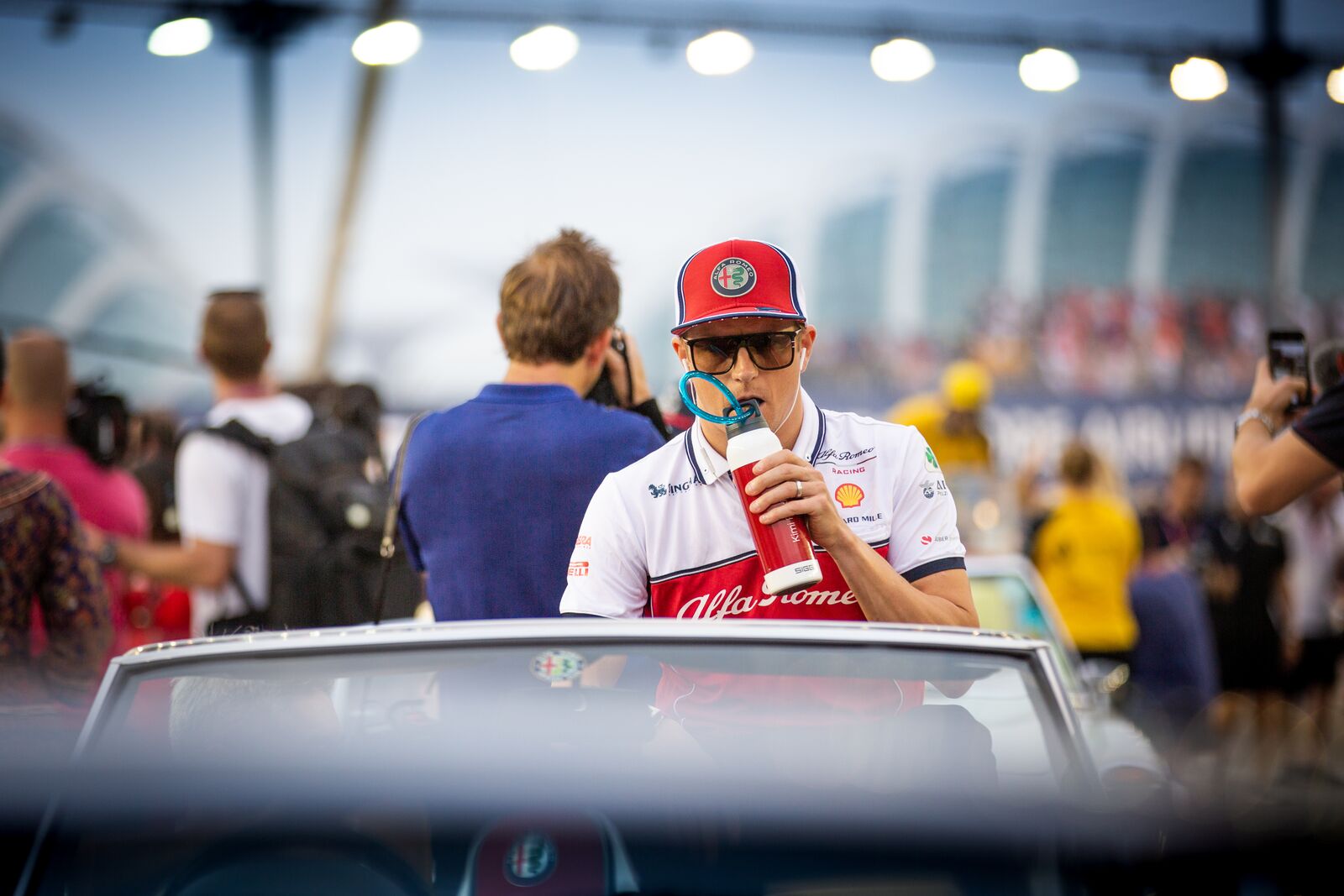
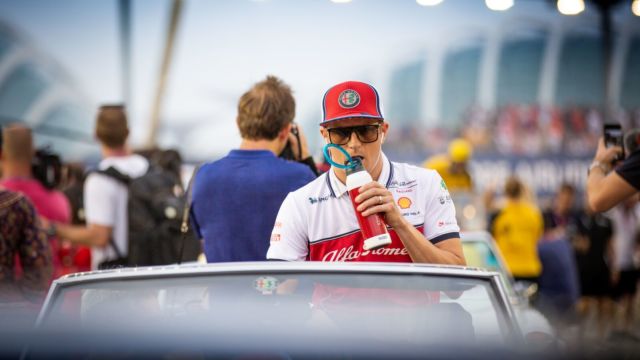
Most fans will wonder if a Formula 1 driver drinks water or fluids when driving in a Grand Prix. But can Formula 1 drivers drink water during a race? And why do Formula 1 drivers need to drink? How do they drink when they have to concentrate on the track at all times and have their hands on the steering? This article will address these and other questions raging in F1 fans’ minds.
In 2014, Jenson Button, the former F1 World Champion won the Hermosa Beach Triathlon ahead of the United States Grand Prix. He completed a quarter-mile ocean swim, 10-mile cycling stint and a 3 mile run in 48 minutes and 25 seconds. This goes to show that Formula 1 drivers are super athletes who have trained their bodies for endurance. A Grand Prix is a strenuous two-hour endurance test with the upper body strapped in a seat. That F1 drivers go through this test and come out standing is proof of their fitness levels.
Why do Formula 1 drivers drink when racing?
F1 drivers are subject anywhere between 2G to 6G forces almost throughout the entire race. At the start of a Grand Prix, the G-forces can go up to 5G as the car is rapidly accelerating. Breaking at the turns can result in 2G forward forces. Side forces on the turns can be as high as 6G. Although a driver’s torso is strapped to the seat, his hands, legs and neck are not. It takes a lot of effort to hold them in place when subject to these forces. All this stress tires the driver and leads to sweating.
Temperatures in an F1 car cabin can go as high as 50 degrees centigrade in hot conditions. Humidity in the cabin can soar to the higher 80 per cent levels. This leads to drivers sweating profusely. F1 drivers’ average heartbeat rate during a race is estimated to be 170bpm during the race. This leads to a lot of blood surging through the blood vessels. A driver’s blood pressure can go up by more than 50 per cent during a race. All this leads to a heavy loss of bodily fluids through sweat and dehydration.
Dehydration leads to grogginess, lethargy and disorientation. F1 drivers need to be alert throughout the race. They need to respond to trying situations in the split of a second. A dehydrated driver is confused and his response timings slow down drastically. This can be dangerous for a driver driving a car at a speed upwards of 250 miles per hour. Drivers are known to lose anywhere between 2 kilograms to 3.5 kilograms after every Grand Prix. In the case of back to back racing weekends, drivers have to recover this weight within four days.
Almost all Formula One drivers, can and do, drink when competing in a Grand Prix. They must drink to replenish the lost fluids in their bodies. Or else, with slower response times they risk a collision when racing. Drivers may even pass out due to extreme dehydration in hot conditions.
What fluids do Formula 1 drivers drink when driving?
Formula 1 drivers train continuously to maintain their weight and physical conditions. If a driver puts on 5 kilograms during the off-season, he may not technically qualify to race in a Grand Prix. In 2022, an F1 car can weigh a maximum of 790 kilograms. That is a thirty-eight-kilogram increase from the weight regulations in 2021. But F1 cars are designed and constructed with the driver’s weight in mind. The cars are weighed dry which means they are weighed without any fuel but with the driver seated in the car. If a driver’s weight increases by 5 kilograms the car’s dry weight may well exceed the stipulated limit.
Drivers are continuously monitored by their trainers and physiotherapists (physios). They make sure that drivers are in prime condition for every event. They also check the driver’s physiological constitution. This result in the trainers and physios deciding on what fluids the driver should imbibe while driving in a race. The driver may request certain additives as per his liking for a particular taste. But it is the physios, trainers and the drivers that decide what the driver is going to drink when driving.
There are exceptions to every rule. Lewis Hamilton has famously claimed that he does not drink any fluids while driving. But all drivers drink around two litres or more of fluids before a race. The liquid is imbibed slowly over a period of one or two hours. This is to achieve optimal hydration. Drivers are careful to avoid overhydration. Overhydration causes nausea and vomiting. It may also cause disorientation just as in the case of dehydration. A driver may drink between one to two and a half litres of fluid during a race. The fluid intake will depend on the driver’s physiology and the weather conditions.
How do Formula 1 drivers drink fluids when driving?
Formula One cars have a small bag below the driver’s seat that contains the fluids of the driver’s choice. The bag has a pump that is connected to a pipe routed through the driver’s suit to his helmet. Inside the helmet, the tube ends up in front of the driver’s mouth. Once seated the diver has to position the tube correctly. A switch on the steering controls the bump on the fluid bag. When the driver presses the switch on the steering the liquid squirts into the driver’s mouth. Some drivers however opt out of the drinking pouch because of weight limitations.
Drivers do not get an opportunity to take a drink during a pit stop because of time constraints. It is impossible for a driver to stop his car and ask a marshal for a drink during a race. Therefore, drivers, their trainers and physios have to monitor a driver’s hydration level carefully. It is difficult to say how much fluid a driver will need to drink during a race. That will depend on his hydration level, his physique, the atmospheric temperature and the humidity. Drivers normally carry 1 to 2 litres of water in their cars during a race.
Have any F1 drivers passed out due to dehydration?
Drivers go to great lengths to maintain their weight. It is crucial that they remain within the weight limit in order to qualify for the Grand Prix a car’s weight cannot be compromised. Many drivers diet before a Grand Prix to reduce their weight. Liquids weigh more than solid food. It means that drivers are inclined to drink less water or fluids before a race. This could lead to serious consequences during a race. Fortunately, there are no instances of drivers crashing due to dehydration.
In 2014, the Times correspondent reported that an unnamed F1 driver passed out during a function in Malaysia. Sepang, where the Malaysian Grand Prix is held can be very sweltry. It is easy for drivers to get dehydrated in hot and humid conditions. Jenson Button was also considering going to the sauna and not eating or drinking anything until before qualifying during the weekend. At the 1984 Dallas Grand Prix, Nigel famously collapsed while getting out of his car after crossing the finish line. That was because of dehydration.
In October 2021, Sergio Perez, competing in the US Grand Prix admitted that he was dehydrated by the time he finished the race. “I had no strength, I was losing strength on my hands, strength on my feet, the vision as well as getting quite uncomfortable, and it was just a surviving mode: trying to keep up,” he said of his condition. In Monaco, Nicholas Latifi admitted winding up dehydrated after forgetting to connect his drinking tube properly.
Are Formula 1 drivers allowed to drink water on their own during a race?
Just like everything else in motorsport, even the moment when drivers drink water during a race is decided by the whole team. Sometimes, they opt to not install a system at all!
It is a common belief among drivers that putting a hydration system in their vehicles is surely going to boost performance rather than acting as a diversion, regardless of their physiology.
In addition to the above, the teams must decide if the increased weight and technical difficulties of integrating a hydration system will outweigh the disadvantages of its installation.
Despite the ease of contemporary hydration systems, every means accessible to the teams to decrease vehicle weight will be used until it is to the driver’s ultimate benefit to enhance performance or Formula 1 demands it.
Many drivers and their teams in the Formula 1 series opt to not install hydration systems due to weight concerns. As mentioned earlier, one of them is the certified crowd favourite and one of the drivers that dominated the racetracks last season—Lewis Hamilton. The British racing driver has been opting not to have any hydration method available for him during a race for quite some time now.
Another racing driver to note is Sauber’s Swedish driver Marcus Ericsson who admitted in 2018 that he has been racing for years without the aid of a hydration system.
“Haven’t had a drink system installed for over two years,” according to Ericsson. This decision can be credited to the weight of the system itself, “it weighs around 1.5 kg. So we choose not to use it because of the weight. Just one of the reasons why we should have the same weight for all drivers.”
Ericsson was talking about the minimum weight for drivers, which is now 80kg (for drivers and their seat ballast) and established by Formula 1 in 2019. The minimum weight requirement in Formula 1 is there to even the playing field between shorter and taller drivers, as shorter drivers naturally weigh less. Before, many drivers had to be below their natural weight to effectively manage the total weight of the car with a driver in it. This practice can significantly improve performance but will sacrifice a driver’s health.
Ever since 2019, if a driver is below 80kg, they will need 10kg of seat ballast.
F1 Drink System Explained – Video
In this episode of #HowItWorks Mercedes shine a spotlight on the drinks system in Formula One.
Can Formula 1 Drivers Drink Water? – The Conclusion
To answer this age-old question, yes! Formula 1 drivers can and do drink water to stay hydrated. It is part of survival in the physically draining sport such as Formula 1.
Hopefully, we have answered your questions regarding how Formula 1 drivers drink water. If we have not, please leave a comment below and we will answer any of your questions!
Can Formula 1 Drivers Drink Water? – FAQs
Can Formula 1 drivers drink water during a race?
Yes, Formula 1 drivers can drink water during a race.
How do F1 drivers drink water while driving?
Formula 1 drivers drink through a tube connected to their drinking system, which allows them to hydrate without having to take their hands off the wheel.
Are F1 drivers allowed to drink other liquids during a race?
No, only water is allowed to be consumed during a race.
How does hydration affect an F1 driver’s performance?
Proper hydration is important for a driver’s performance as it helps to maintain their cognitive and physical abilities throughout a race.
Can drinking too much water be dangerous for F1 drivers?
Drinking too much water can lead to hyponatremia, a condition where the sodium levels in the body become diluted, causing symptoms such as nausea and confusion.
Is there a specific amount of water that F1 drivers should drink during a race?
The amount of water a driver should drink during a race depends on various factors such as their individual hydration needs, the temperature inside the cockpit, and the length of the race.
Do F1 teams have specific guidelines for hydration during a race?
Yes, teams have specific guidelines for their drivers regarding hydration during a race, taking into consideration the factors mentioned above.
How does the drinking system work in a Formula 1 car?
The drinking system consists of a tube connected to a hydration pack, which holds the water, and a nozzle near the driver’s mouth. The driver can take sips of water while driving by sucking on the nozzle.
Does the drinking system add weight to a Formula 1 car?
The drinking system and hydration pack add a minimal amount of weight to the car, which is not significant enough to affect performance.


